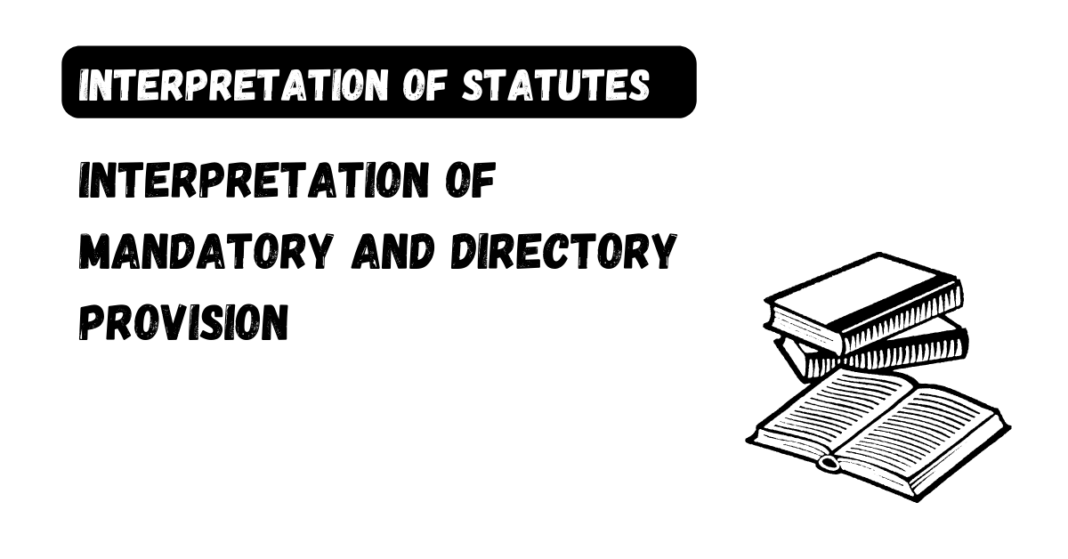In Indian law, mandatory provisions are those that must be strictly complied with, while directory provisions are those that are flexible and can be complied with in a more relaxed manner. The interpretation of mandatory and directory provisions is important because failure to comply with a mandatory provision can result in legal consequences, while failure to comply with a directory provision generally does not.
Mandatory Provision
A mandatory provision refers to a rule, regulation or law that must be followed strictly without any deviation or discretion. Failure to comply with such a provision may result in the nullification of an act or order.
If a provision is classified as mandatory, it must be strictly followed without any deviation or discretion. Failure to comply with a mandatory provision may result in severe consequences, such as the nullification of an act or order.
Directory Provision
A directory provision, on the other hand, refers to a rule or regulation that is intended to guide the performance of a duty but does not impose a strict requirement that must be followed. Failure to comply with a directory provision does not necessarily result in the nullification of an act or order.
If a provision is classified as directory, it may be complied with in a practical and reasonable manner, taking into account the circumstances of the case. Non-compliance with a directory provision may not necessarily result in the nullification of an act or order, but it may still have consequences, such as the imposition of penalties or the invalidation of certain actions.
The Interpretation of Mandatory and Directory Provisions involves a range of Legal Principles and Methods
- Language of the provision: The language used in the provision itself is often the starting point for determining whether it is mandatory or directory. If the provision uses words such as “shall” or “must”, it is likely to be mandatory, while provisions that use words such as “may” or “should” are generally directory.
- Purpose of the provision: The purpose of the provision can also be an important factor in determining whether it is mandatory or directory. If the provision is designed to protect fundamental rights or ensure public safety, for example, it is more likely to be mandatory.
- Consequences of non-compliance: The consequences of non-compliance with the provision can also provide clues as to whether it is mandatory or directory. If the failure to comply would result in serious legal consequences, such as the invalidation of a contract or the loss of a right, it is likely to be mandatory.
- Legislative intent: The intent of the legislature when enacting the provision can also be a relevant factor in determining whether it is mandatory or directory. If the legislature clearly intended the provision to be mandatory, courts are likely to interpret it as such.






Pretty great post. I just stumbled upon your blog and wished to say that I’ve truly loved surfing around
your blog posts. After all I’ll be subscribing in your rss feed
and I hope you write once more very soon!
This is a topic I’ve been curious about. Thanks for the detailed information.
Appreciate the concise and purposeful depiction of the subject matter!